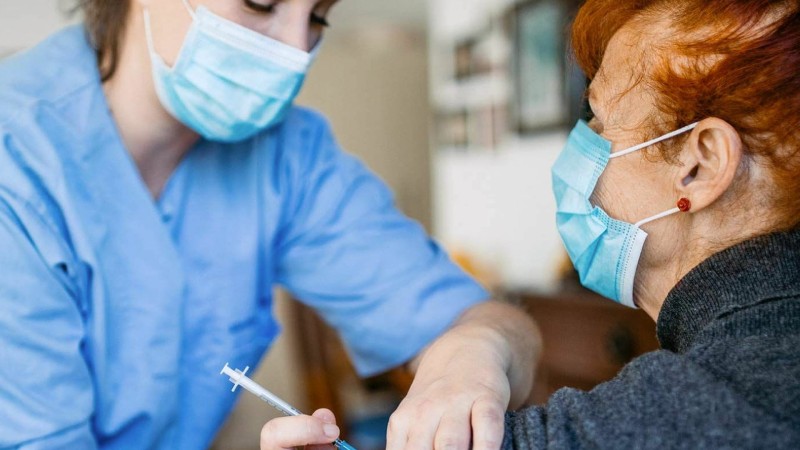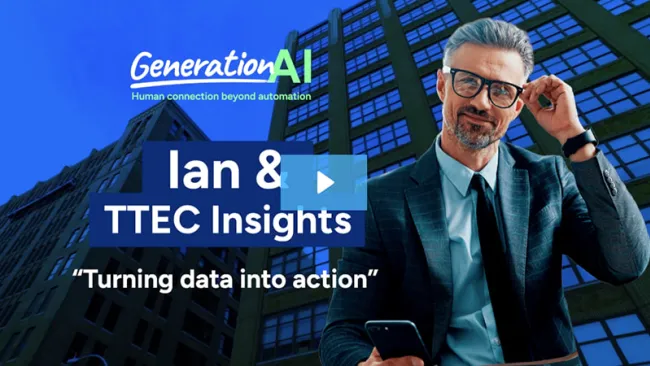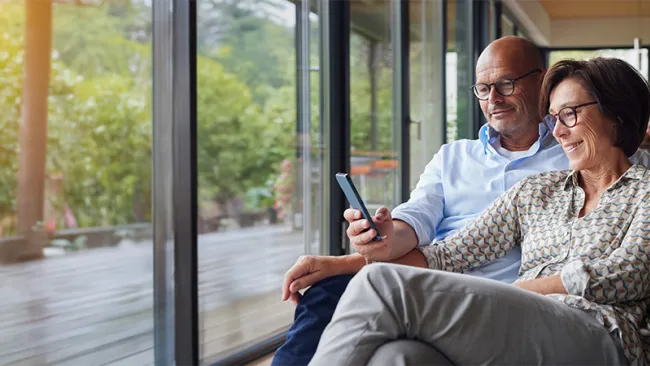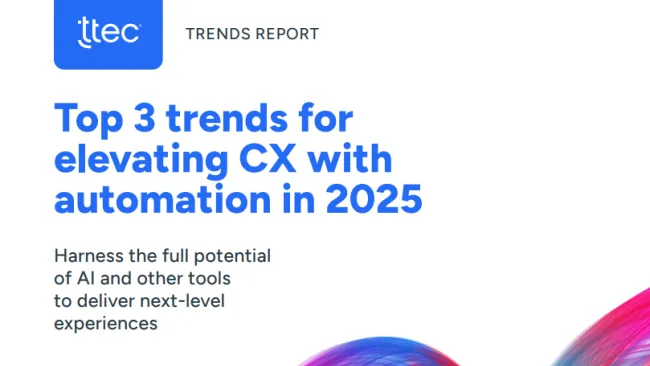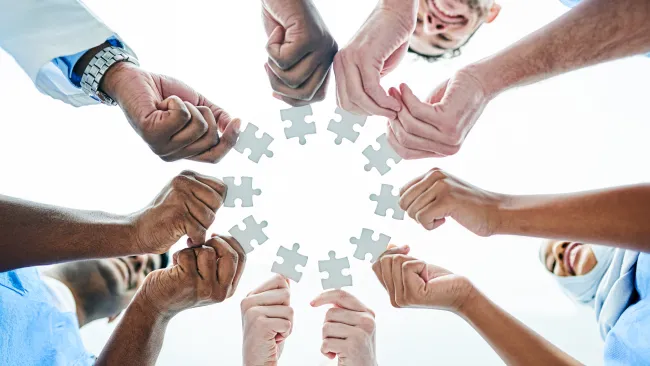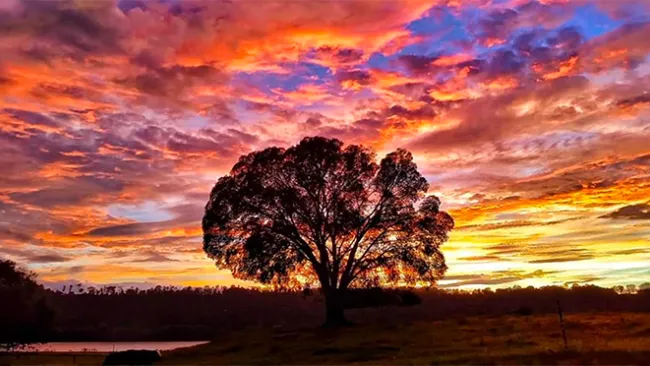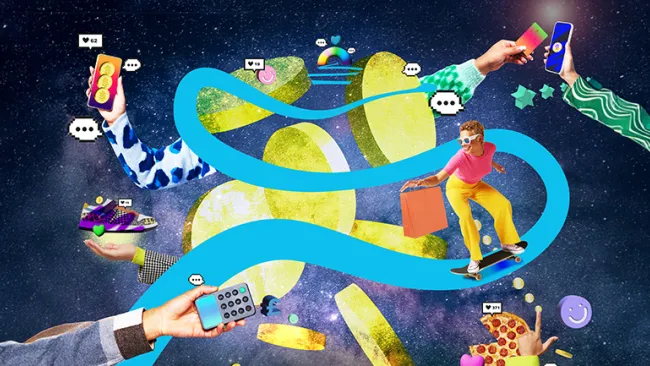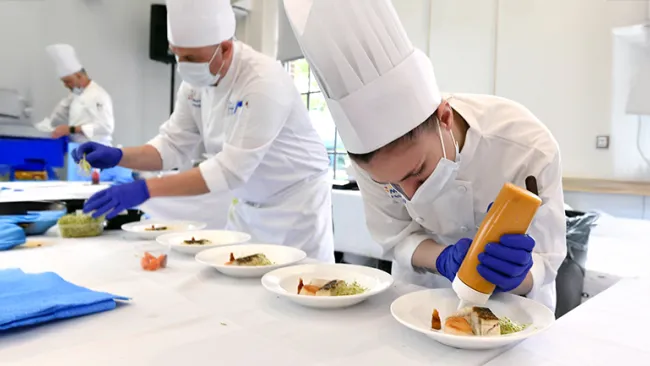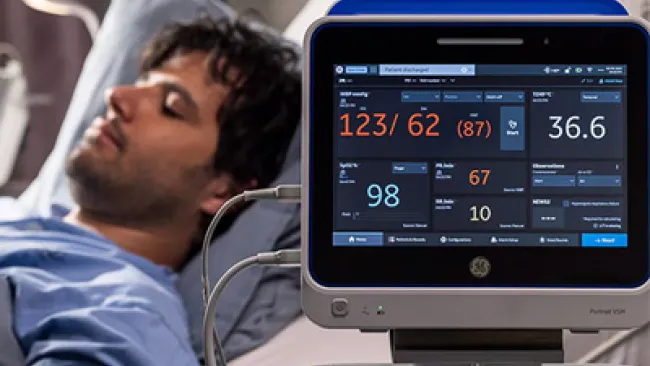As the COVID-19 vaccine rollout begins across the country, patient experiences vary. Hear what some people had to say in their efforts to receive some of the first doses of vaccine, and how what they’ve experienced can help improve future vaccine distribution.
Transcript:
Liz Glagowski:
Hi, I'm Liz Glagowski, editor of the Customer Strategist Journal. Vaccine rollout is underway with different levels of success around the U.S. and while there's plenty of coverage about supply, distribution and clinical aspects, the customer experience side of vaccine rollout is often overlooked. We wanted to find out what it was really like, so we asked people with different circumstances about their end to end vaccine experiences. We spoke with medical professionals, retirees and others who were part of the first wave of vaccines across the country. Here's what they had to say about their journeys.
Angel:
I'm Angel, I'm a nurse in the Los Angeles area. I would classify my vaccine experience as very easy and the reason it was so easy was how seamless the process was. I received an email to make an appointment, during my appointment slot, I went down to the basement, got my vaccine. I was in and out within 15 minutes and it was so straightforward.
Tab Abdeen:
Hi, my name is Tab Abdeen and I am an inpatient pharmacist at a government hospital here in Denver, Colorado. I also have the opportunity to be involved in our vaccination efforts where we help out from a pharmacy standpoint in mixing the vaccine and drawing up the doses as well. I'd say my vaccination experience was fairly easy. About a month before we received our first batch of the COVID-19, the vaccines, the director of our hospital held a town hall meeting to discuss the vaccine and who would receive it first. And then fast forward to about a week before we received our first batch of vaccines in December, we received a hospital wide email asking us to fill out a form with our profession, if we worked inpatient versus outpatient and if we have any face-to-face encounters with COVID patients in our day-to-day work.
And because I work in-patient, so I'll sometimes work in the IV room, I'll sometimes work in ICU, I was fortunate enough to be in group 1A, which is one of the first groups who received the initial batch of vaccines. We then received a link to a web based scheduling portal, where we scheduled our first and second doses at the same time. When I received my first dose, because it was in the early days of the vaccine rollout and we started off with the in-house essential employees first, the scheduling was the easy part. The pilot clinic actually went off very smoothly. I filled out the questionnaires when I got there, received my shot from a nurse practitioner and was observed for 15 minutes in a hall with other people who had also received the vaccine. And then before my second dose, a few weeks later, I received an email confirming my appointment time sent to my work email and then I was able to confirm my time slot.
From the behind the scenes and logistics that's the standpoint, I think mass vaccinating is proving to be a bit of a challenge for scheduling. Right now we are still running two clinics, an employee and a patient one, but they're each using a different scheduling package. As an example, there's one clinic who is essentially confirming and scheduling their same day appointments on an Excel spreadsheet, which is not really the best way of going about it. So this is a bit of a challenge for us in pharmacy because we can't get a good estimate on how many doses to make for the rest of the day.
Some other issues that we're seeing right now range from distribution and storage of the vaccine, ensuring people when they're scheduled, that they come with their CDC issued vaccine card and how to deal with the no-shows and cancellations, especially when it comes to that a second dose. Also, as we ramp up our operations, staffing the clinics is also a bit of a barrier since we need administrators and schedulers and nurses to actually administer the vaccine, a lot of whom are working overtime right now.
Liz Glagowski:
Angel and Tab got their vaccines within a closed loop healthcare setting. But for the general public, it's been a different story. Claudine Vieten, a retiree in Connecticut, found the online portal, an overall process to be a bit complicated.
Claudine Vieten:
It started with I went on the website VAMS to try to register and that was a pure exercise in frustration. I can manage a computer, I do own a computer, but it was so ridiculous. You had to fill out this information then you got to the bottom, and then you had to wait for them to email you a number that you then had to go back in and put into the same website that you had been in and then you had to wait again. But there wasn't a lot of explanation on how to do that, or what would happen once you put the number in, and even after you put the number in, then you were in never, never land again. We are on My Chart for Hartford Healthcare, and I had an appointment with a urologist unrelated to anything COVID and she said, "You have to go into the app."
And that opened me up to something on my chart that [inaudible 00:06:28] I would've never gotten an app, never. That would have been the last thing that would have occurred to me, especially since I'm on My Chart. On my computer, I could see that I could register for different places, so I went in to register, to find out where they were and the local hospital, Wyndham Hospital did have openings for a few weeks down the road, so I went into do that. And as I did, one opening popped up for a few days later, which I took. We went the next day and my husband waited in the car and I went in and they were as nice as can be. They were absolutely wonderful. They were very organized. I had everything online, was registered online, of course, so they just told me that they were giving Pfizer that day and I said, "That was fine."
And they said, "Wait, on that line over there." There were two people in front of me, so then I got my shot. I waited the 15 minutes. When I was getting the shot, the nurse asked me something and I said, "Well, my husband doesn't have an appointment until February 8th." So she said, "Well, ask about a list for the end of the day for shots." So I did and she said, "Well, nobody has not showed up, so we don't really have a list." But there was a doctor walking around, I guess, to make sure nobody got anaphylactic shock and he came over and he said, "Let him in."
So I went to the car to get my husband and we came back in and there was a fire drill. All told, we were probably there an hour. It was smooth, it was pleasant. There were no problems. Everybody was as nice as can be and we had no problem. We had these shots on January 22nd. We have vaccine shots for the 15th. They give you a little card that says what you got, et cetera, et cetera. And they told me to go home and make the appointment on the computer, which is exactly what I did. I do want to make a note that I'm computer savvy, my husband is not computer savvy and could have never negotiated the system.
Liz Glagowski:
Others also had varying levels of success when trying to navigate the system with circumstances that didn't fit the typical eligibility requirements.
Jen Reese:
I am Jen Reese and I live in Virginia. Our experience was actually surprisingly easy. I live in Loudoun County, Virginia, which is outside Washington D.C. and our department had sent out a press release mid to late January saying if you're a healthcare provider and your employer is not able to provide you with the vaccine or not scheduling them, please email the County health department. And I'm in a special circumstance where I have a daughter who just turned 13 who has pretty significant medical disabilities. She hasn't really left the house much except for doctor's appointments since COVID. And so, my husband and I are her home healthcare workers. Right now we're not having any nurses come in just because of the fear of COVID. And so, I emailed the health department and I said, "Hey, we are home health care workers.
My daughter, isn't going to be able to get the vaccine for a really long time, is there a possibility that we would be considered for the vaccine?" And so, they emailed back and honestly it was three or four days my vaccine was scheduled in the system at the time it was just by the County. My vaccine was scheduled, I showed up. Everybody was well organized, our volunteer medical core for our County handled everything. Quick registration, quick through the line, still had a hangout afterwards to make sure that you were okay after your vaccine, didn't have any reactions but it was really a nice process. And I had my first vaccine on New Year's Eve, so it was early on. I had the second one, January 28th. So the County had registered with the CDC service, I think it's called VAMS, an online service until you were able to reschedule because we were already in the system.
So upfront, I went back and forth with our health department to get registered and it was still a small process, so it was dealing with a nurse at our County health department. Since then, I know last week Virginia went to a statewide system and so, all the counties and all the areas are supposed to be feeding their information into the statewide registration system. I haven't heard how it's been since then, but ours was surprisingly easy. I mean, for us, we were really lucky. But the one thing that has been surprising is just the inconsistencies, our County health department understood. I was able to make a plea that we are healthcare providers, but next County over people were having so many issues. So it's the inconsistency about who decides who's a priority 1A, who's a priority 1B and in Virginia, they've broken it down at different levels.
And so, I think that was the hardest part just for other people I've heard from, especially is that inconsistency and the, well, we got it here in my County, but three County's away there's no way that they're going to give it to a parent of a child with disabilities. It's just really been surprising to me that they weren't ready. I helped my parents register in Florida and they used Event Bright as their registration system, which is in the very beginning. And then now, I mean, Florida is a whole different story and different pharmacies involved, but here, no, I happened to email the right person at the right time and said the right words to get us in. And so, I think it's really, this needed to be planned way more ahead of time. There should have been consistent services, there should've been even just online databases that were appropriate. And we knew this day was going to come, they've been working on the vaccine for a long time. Why we weren't more prepared just with the tech part of it is a bit absurd.
Michelle:
My name is Michelle and I'm from Denver, Colorado. I would say that my vaccine experience has been difficult because it's very difficult to understand who is giving out the vaccine, how to get in line, where to sign up. There's been a lot of contradictory information. So for example, one, doctor's office might send you to a hospital to sign up but then you get to the hospital, and then they say, "No, you have to go to your doctor's office." And so, we get caught in a loop of trying to sign up for vaccines, and my doctor's office told me that they would let me know when it's time for me to get my vaccine. But the truth is that I work in an industry, a frontline industry that's considered an essential business, so that's not in my chart. So I'm not sure how they would know when it's time for me to get my vaccine.
I think the particular pain point is really just trying to get signed up and get in line. My particular provider said that I can sign up online in my online chart, but there's nowhere to sign up. And she said, "Well, that's because it's not your turn," but it seems to me that they could be collecting names and just let us know when it's my turn based on information that I provide. I also went to my health department trying to see if there were some central database in Colorado or with my County that I could sign up for and there wasn't, but they gave a lot of different options. So I'm a little bit concerned that I've mucked up the system because I signed up for vaccines in every place I could. I have no idea when I'll get a vaccine. Some of the places I signed up at said, "Thank you, we've received your application," other places it just seemed like a black hole. But I've heard nothing and I don't know that I will hear anything from any of them.
Liz Glagowski:
So what can we learn from the vaccine experience so far? Each of my guests emphasized the need for more resources, coordination and technology, as the vaccine becomes available to millions more.
Angel:
My biggest recommendation for people involved getting the vaccine to people is just to make the process seamless. No questions about it, which category do you fall under? When can I go it? Where can I go get it? Where do I park? Just very seamless delivery of information would be best. I also think that the public could use a little bit more education about the vaccine, how it works. Right now, most people are getting their information from Facebook or Instagram or [inaudible 00:15:14] University, I don't know, which is fine, as long as the information is accurate, but what sucks is when there's tons of information being disseminated that is not evidence based. So I think teaching the public about the risks and the benefits of the vaccine in an accurate way is really important. And to help our public understand which sources are reliable and which really aren't.
Tab Abdeen:
I think from a process standpoint, I believe automating a lot of our processes would be central as we wrap up the vaccine administration, especially from a scheduling standpoint. Right now, this is proving to be a bit difficult since our greatest at risk population that we're trying to vaccinate right now that doesn't really have adequate access to technology, which is making a scheduling a very manual process at the moment.
Michelle:
So I think if I were going to stay in my phase that someone who is 41 I think that would be phase three. If I were going to stay in that phase, I think an automated system would be just fine. For anybody who has a special exception, I think that a well trained human would be incredibly helpful. I talked to my doctor's office and she basically said that she didn't know how or why or when things were going to happen. So I don't think it's just a human touch, I think is a well trained human touch.
Claudine Vieten:
I think that there was very little coordination. I think when it gets down to your age group and your computer savviness, there'd be no problem whatsoever. But I think that the lack of available places to go locally is a big problem for a lot of older people. I think that's the biggest thing. And then the telephone number has to have many, many, many more people involved in that. Call centers should be much better manned and more manned. I think that would be a big help because most people have a phone, even if they aren't computer savvy, they have a phone and they can make a phone call, so that will help and especially in populations that don't have computers.
Angel:
I would just say, go get it as soon as you can get it. Don't rely on herd immunity, there are people who really have to rely on herd immunity. We've worked so hard to get here and we will get out of it together.
Liz Glagowski:
Thanks for listening, and look for more in our vaccine series by subscribing to the CX POD where you get your podcasts or by visiting us at thecxpod.com. Thanks everyone and we'll see you next time.
